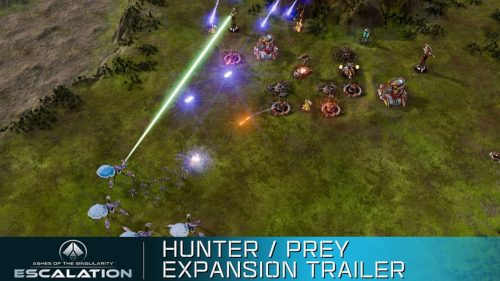

While Halfon and Burkai explore some important patterns, we should also “be careful overly romanticize the relationship that foragers have with hunted game,” says evolutionary anthropologist Manvir Singh, a postdoctoral research fellow at the Institute for Advanced Study in Toulouse. However, elephants disappeared from the region around 400,000 ago, and with the emergence of the Middle Paleolithic era (~400,000 to 40,000 years ago) there was a shift in the types of tools used, from the large hand-axes to “scrapers” (for hide-working) and flint knives, as well as a new specialization in medium-sized game such as fallow deer. Halfon and Burkai note how in the Levant during the Lower Paleolithic era (~1.8 million to 400,000 years ago), elephants were a highly valued food source, and hand-axe tools were commonly made from elephant bones. With the decline or local extinction of a valued animal partner, challenging new demands were imposed on hunters, requiring not only additional or novel prey sources, but associated changes in tool type and hunting strategies as well.

The relationship between hunter and prey can represent a reciprocal bond, infused with psychological meaning and spiritual weight. Animal prey and their spirits represented something close to equal partners in the struggle for survival, rather than being part of the kind of dominant-subservient relationship more likely to be associated with animal domestication. Halfon and Burkai explore how hunting societies often had a fundamentally different worldview regarding human-animal interactions than what is commonly found in agricultural societies and modern industrial nations.

Animals, certainly large mammals, are among the hunter-gatherer’s most essential partners.” Halfon and Barkai emphasize “the inextricable connection between hunter-gatherers and other living agents with whom they share the environment and on whose existence they depend. In a recent paper, “The material and mental effects of animal disappearance on indigenous hunter-gatherers, past and present,” anthropologists Eyal Halfon and Ran Barkai seek to evaluate that very question.

This emotional connection between hunter and hunted raises important questions about what happens when an animal species disappears-what is the human response to such ill-fate? We should take care not to over-romanticize the pattern or downplay the violence associated with the hunt. Yukaghir hunters of Siberia would address the bear as “Grandfather” and apologize to their spirit for the killing. Bear ceremonialism was widely practiced in traditional societies across Eurasia and North America, where bears were treated with special respect and ceremony both during the hunt and after death. Copper Inuit hunters of Victoria Island would throw out part of the liver of every caribou killed to gain the favor of the caribou spirit. Whales among the Nuu-chah-nulth of British Columbia were addressed as “queen” and associated with many special songs and rituals. Guayaki-Ache hunters of the Amazon would often salute their prey after death and sing for them. Such events, however destructive and aggressive as they tend to be, are commonly associated not with the hunter’s sense of malice, disdain, or even casual disinterest, but an abiding sense of respect and honor for his prey.įorager hunters commonly sing songs in praise of the game killed, use special honorific names or titles for them, or perform other rituals and offerings to appease their spirits. For hunter-gatherers, occupying environments where animal protein is essential to subsist, the hunt is an act of necessity. Yet, to focus alone on the concluding moment, the bloody brutality of the killing itself, risks obscuring a more subtle and significant meaning to this harsh affair. The emotional connection between hunter and hunted raises important questions about what happens when an animal species disappears-what is the human response to such ill-fate? Wellcome Images / WikicommonsĪ productive hunt is a violent act-success requiring as it does the dismemberment of a living creature.


 0 kommentar(er)
0 kommentar(er)
